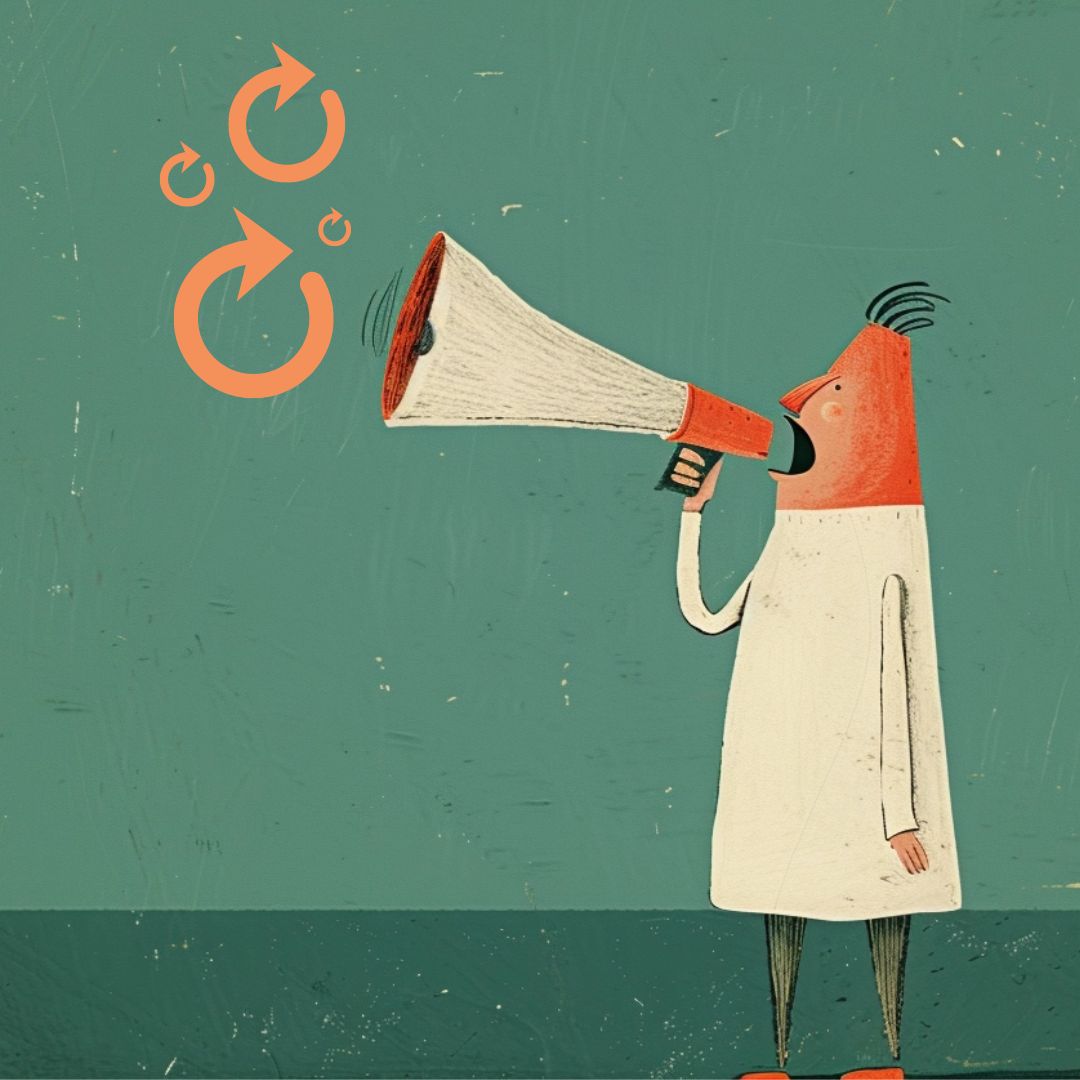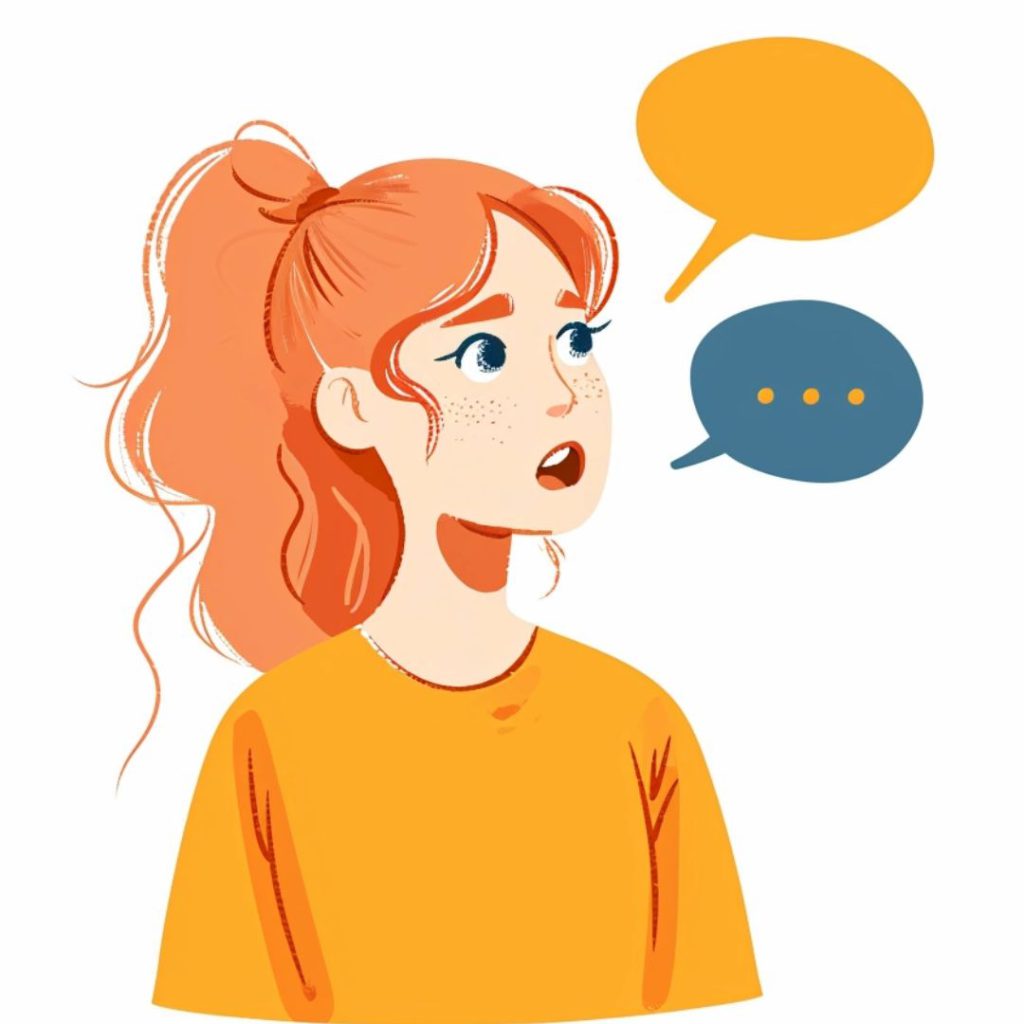Echolalia Without Autism: More Than Just a Symptom

Many associate echolalia with autism. However, it’s important to understand that echolalia can occur in individuals without an autism diagnosis. While it can be present in some autistic individuals, echolalia and speech delays are not inherent parts of being autistic. This article delves deeper into echolalia without autism, exploring its various forms, potential causes, and the importance of seeking professional guidance.
Echolalia: What It is and What It isn’t
Echolalia is a term used to describe the repetition of another person’s speech. It’s like an “echo,” where someone repeats what they hear, either immediately or after some time.
- Echo: This refers to the act of repeating sound.
- -lalia: This is a suffix related to speech, like in “lullaby” or “palilalia” (repeated syllables).
Therefore, echolalia literally translates to “speech echo.”
It’s important to remember that echolalia is not the same as:
- Stuttering: While stuttering involves involuntary repetitions of sounds or words, echolalia is specifically the repetition of someone else’s speech.
- Palilalia: This refers to the involuntary repetition of single words or syllables, not whole phrases or sentences like echolalia.
| Related: Can You Have Echolalia as an Adult? Read Echolalia in Adults to find out.
Echolalia without Autism

While echolalia is often associated with Autism Spectrum Disorder (ASD), it’s essential to understand that it can occur in individuals without an ASD diagnosis. It can manifest in various situations and for different reasons.
| Discover: Echolalia and Autism
Here are some non-autism situations where echolalia might be present:
- Aphasia: This language disorder, often caused by stroke or brain injury, can affect individuals’ ability to understand and produce speech. Echolalia may be observed as they attempt to process and learn new language skills.
- Tourette’s Syndrome: This neurological condition can present with echolalia as one of its tics, which are involuntary vocalizations or movements.
- Intellectual Disability: Individuals with intellectual disabilities may exhibit echolalia due to various factors, such as communication difficulties or limited vocabulary.
- Developmental Delays: Children experiencing developmental delays might use echolalia as they learn and develop their language skills.
Other potential reasons for echolalia include:
- Information Processing: Echolalia might be used to process new information or language patterns, helping individuals with communication difficulties understand and learn.
- Seeking Attention: In some cases, echolalia can be a way to gain attention or initiate interaction, especially if an individual lacks alternative means of communication.
- Expressing Excitement: Occasionally, echolalia may be used to express excitement or strong emotions, repeating words or phrases associated with the experience.
Types of Echolalia
- Immediate Echolalia: This involves repeating what someone says right after hearing it. For instance, someone asks, “Would you like some juice?” and the response is simply, “Juice?”
- Delayed Echolalia: Here, the repetition occurs after some time has passed. Imagine a child hearing a funny phrase in a movie and repeating it later in different contexts.
It’s crucial to remember that both immediate echolalia without autism and delayed echolalia without autism exist. While various reasons, as discussed previously, can contribute to these forms of echolalia, diagnosis requires professional expertise. This underlines the importance of seeking professional help to understand the underlying cause and develop appropriate support strategies.
Non-autism situations where echolalia may be present:
- Aphasia: Language disorder from stroke or brain injury.
- Tourette’s Syndrome: Neurological condition with echolalia as a tic.
- Intellectual Disability: Communication difficulties or limited vocabulary.
- Developmental Delays: Used during language development in children.
Other reasons for echolalia:
- Information Processing: Helps understand and learn new language patterns.
- Seeking Attention: Used to gain attention or initiate interaction.
- Expressing Excitement: Used to convey strong emotions.
Types of Echolalia:
- Immediate: Repetition right after hearing.
- Delayed: Repetition after some time has passed.
Both types can occur without autism, requiring professional diagnosis for appropriate support strategies.
| Read more: Echolalia in ADHD
When to See Doctor?
While echolalia with or without autism isn’t inherently negative, seeking professional help can be crucial in certain cases. If echolalia significantly hinders the individual’s ability to express themselves or engage in meaningful communication, causing social difficulties, emotional distress, or hinders learning and development, it’s important to consult a doctor to rule out any potential underlying medical conditions. Early evaluation and intervention can lead to better outcomes.
HealWiser’s Last Piece of Advice
While echolalia, the repetition of another person’s speech, is most commonly associated with individuals with autism, it’s important to understand that echolalia without autism also exists. This phenomenon can manifest in various ways and for different reasons. A healthcare professional can provide a deeper understanding of the specific underlying causes of echolalia in each case.
Remember, echolalia doesn’t necessarily signify a negative outcome. With proper evaluation and support, individuals experiencing echolalia can thrive in their personal and social lives.
Sharing your experiences can provide valuable insights and emotional support. So…
…share your story with Heal Wiser and others in the comments section below this post.





